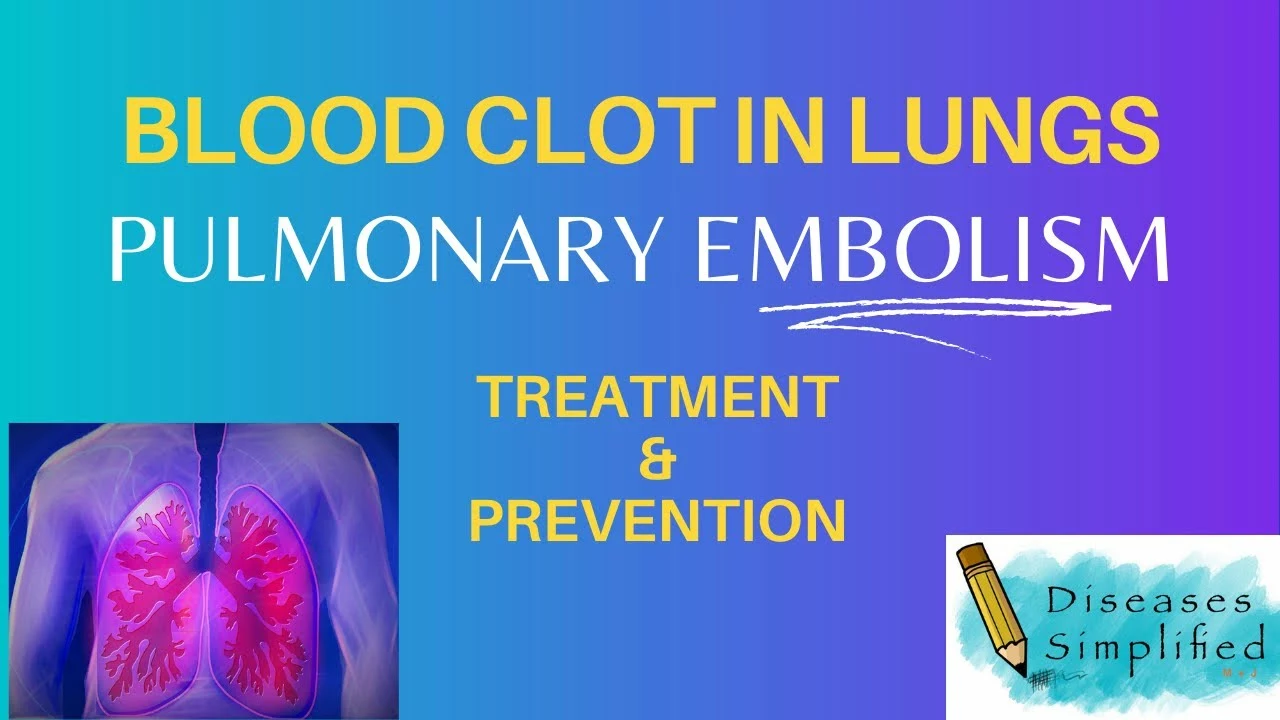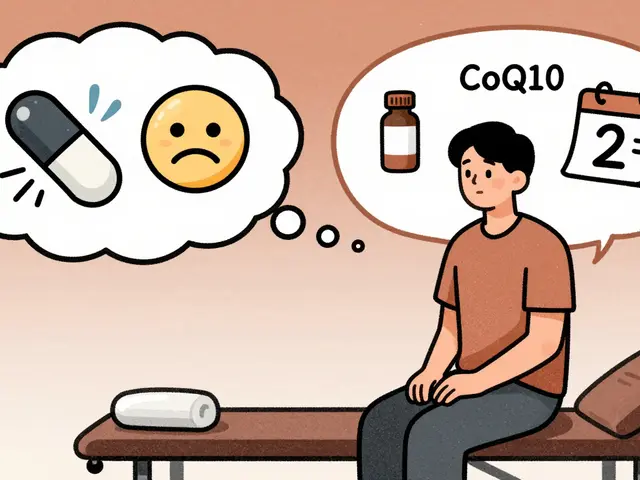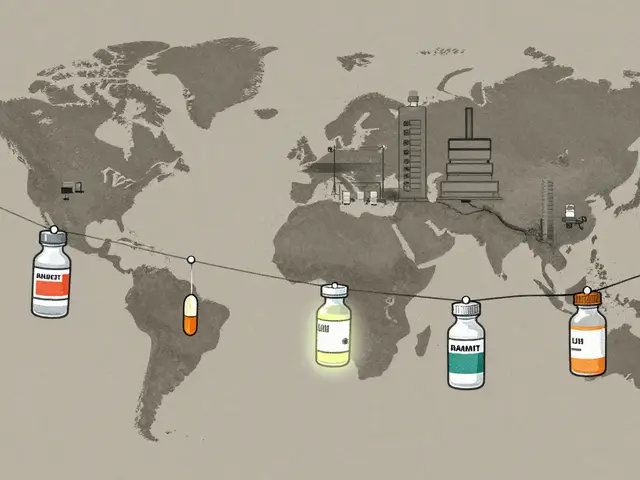Understanding Blood Clots and Migraines
Before diving into the connection between blood clots and migraines, it's important to understand what each of these conditions entails. Blood clots are clumps of blood that form when blood thickens and clumps together, potentially leading to serious complications such as stroke or heart attack. Migraines, on the other hand, are severe headaches that cause intense pain, usually on one side of the head, and can be accompanied by other symptoms like nausea and sensitivity to light and sound.
In this article, we'll explore the possible link between these two conditions and discuss what you need to know to protect your health.
How Blood Clots Can Trigger Migraines
One of the ways that blood clots may be related to migraines is through a condition called a patent foramen ovale (PFO), which is a small hole in the heart that didn't close properly after birth. In some cases, a blood clot can pass through this hole and travel to the brain, potentially causing a migraine. This is because the clot may disrupt blood flow in the brain, leading to the release of chemicals that cause inflammation and pain.
It's important to note that not everyone with a PFO will experience migraines, and not all migraines are caused by blood clots. However, it's worth being aware of this possible connection, especially if you have a history of blood clots or migraines.
Recognizing the Symptoms of a Blood Clot-Related Migraine
While it may be difficult to determine whether a migraine is caused by a blood clot, there are some symptoms that may suggest a clot-related migraine. These can include sudden, severe headache pain that is different from your usual migraine pain, as well as other symptoms like visual disturbances, difficulty speaking, or weakness on one side of the body.
If you suspect that your migraine might be related to a blood clot, it's essential to seek immediate medical attention, as this could be a sign of a more serious condition like a stroke.
The Risk Factors for Blood Clots and Migraines
There are several risk factors that can increase your chances of developing both blood clots and migraines. Some of these risk factors include a family history of migraines or clotting disorders, smoking, obesity, and the use of certain medications like birth control pills. Additionally, some medical conditions like heart disease, high blood pressure, and diabetes can also increase your risk.
Being aware of these risk factors can help you take steps to manage your health and reduce your chances of developing blood clots and migraines.
Preventing Blood Clots and Migraines
Fortunately, there are steps you can take to help prevent blood clots and migraines. Some of these preventive measures include maintaining a healthy lifestyle, exercising regularly, avoiding smoking, and managing any underlying medical conditions. Additionally, if you're at a higher risk for blood clots, your doctor may recommend medications like blood thinners to help reduce your risk.
In terms of preventing migraines, it's essential to identify and avoid your triggers, such as certain foods, stress, and lack of sleep.
Treatment Options for Blood Clot-Related Migraines
If you're experiencing migraines that are potentially related to blood clots, it's important to consult with your healthcare provider for an accurate diagnosis and appropriate treatment plan. Treatment options may include blood-thinning medications to help dissolve the clot and prevent future clots, as well as migraine-specific medications to help manage your symptoms.
In some cases, your doctor may also recommend a procedure to close the PFO if it's believed to be contributing to your migraines.
Understanding the Role of Hormones in Migraines and Blood Clots
For some individuals, migraines may be linked to hormonal changes, such as those experienced during menstruation, pregnancy, or menopause. These hormonal fluctuations can also increase the risk of blood clots, especially in women who are taking birth control pills or hormone replacement therapy.
If you believe that your migraines are related to hormonal changes, it's crucial to discuss this with your healthcare provider to determine the best course of action for managing your migraines and reducing your risk of blood clots.
When to Seek Medical Help for Migraines and Blood Clots
If you're experiencing migraines and suspect that they may be related to blood clots, it's important to seek medical help as soon as possible. Some warning signs that your migraine might be related to a blood clot include sudden and severe headache pain, visual disturbances, difficulty speaking, or weakness on one side of the body.
Additionally, if you have a history of blood clots or clotting disorders, it's essential to work closely with your healthcare provider to manage your risk and receive appropriate treatment when necessary.
The Importance of Regular Checkups and Monitoring
Regular checkups and monitoring are essential for anyone who is at risk for blood clots and migraines. Your healthcare provider can help you identify any potential risk factors, as well as develop a personalized prevention plan to help reduce your chances of developing these conditions.
Furthermore, staying in close communication with your healthcare provider can help ensure that you receive prompt treatment if you do develop a blood clot or experience a migraine that may be related to a clot.
Conclusion
In conclusion, it's crucial to be aware of the potential connection between blood clots and migraines. By understanding the risk factors, taking preventive measures, and seeking appropriate medical care when necessary, you can help protect your health and reduce your chances of experiencing these potentially debilitating conditions.
Remember, it's always essential to work closely with your healthcare provider to manage your risk and ensure that you're receiving the best possible care.








20 comments
jackie cote
This is a solid overview. I've seen patients with PFO and chronic migraines improve dramatically after closure. Don't ignore the link.
Know your risk factors.
ANDREA SCIACCA
AMERICA IS THE ONLY COUNTRY WHERE THEY EVEN THINK ABOUT THIS!!! THE REST OF THE WORLD JUST SUFFERS IN SILENCE!!! PFO IS A MODERN PLAGUE CAUSED BY BAD FOOD AND STRESS!!!
Camille Mavibas
i had migraines for years and then found out i had a pfo... after the procedure? life changed. 🙏 no more aura, no more nausea. just peace.
Shubham Singh
You know what really causes migraines? The soul's resistance to modern life. Blood clots are just the body's way of screaming for meaning. We've been conditioned to treat symptoms, not the spiritual dissonance beneath.
Hollis Hamon
I appreciate the practical advice on prevention. Regular checkups and avoiding smoking are simple but often overlooked. It's good to see this emphasized.
Adam Walter
Let’s be real: PFO isn’t some obscure footnote-it’s a silent saboteur. I’ve seen it in ERs, in neurology consults, in young women on birth control who swear their migraines 'came outta nowhere.' The clot doesn’t just travel-it *invades*. And when it does, it doesn’t knock. It kicks the door down. If you’ve got migraines with aura, especially if they’re new or worsening, get an echo. Don’t wait for the stroke to be your wake-up call.
Gurupriya Dutta
I’ve had migraines since my 20s and recently learned my mother had a PFO. It makes me wonder if mine are connected. I’ve never asked my doctor about it.
Michael Lynch
I used to think migraines were just bad headaches. Turns out they’re the brain’s emergency broadcast system. If your head feels like it’s being crushed by a glacier and you can’t stand the light? That’s not weakness. That’s your body trying to tell you something. Pay attention.
caroline howard
Oh wow, so now I’m supposed to believe my monthly migraines are caused by blood clots? And not just the fact that I’m a woman who drinks coffee like water and sleeps like a corpse? 😏
Melissa Thompson
This article is dangerously incomplete. It doesn't mention that 87% of PFO-related migraines occur in women under 40 who consume dairy or gluten. And no one talks about how pharmaceutical companies profit from masking symptoms instead of fixing root causes. You're being manipulated.
Rika Nokashi
You people are so naive. In India, we know that migraines are caused by negative energy and poor karma, not some hole in your heart. You think science can fix everything? You don't understand the deeper spiritual imbalance that leads to these physical manifestations. Your modern medicine is just a band-aid on a bullet wound.
Don Moore
The data supporting PFO closure for migraine relief is still evolving. While some studies show benefit, others do not. Always consult a neurologist and cardiologist together before considering intervention.
Austin Levine
Migraine + aura = get checked.
Matthew King
i got my pfo closed last year and honestly? best decision ever. no more brain fog, no more 'oh no not again' headaches. life's just... quieter now.
Andrea Swick
I’ve been living with migraines for over 15 years. I never connected them to clotting until now. I wonder if my history of deep vein thrombosis as a teenager is related. I’ve never brought it up to my neurologist.
Amelia Wigton
The article fails to adequately address the role of endothelial dysfunction, fibrinolytic imbalance, and serotonin dysregulation in the pathophysiology of migraine with aura associated with PFO. Furthermore, it lacks reference to the 2021 NEJM meta-analysis on closure outcomes. This is superficial.
Joe Puleo
If you’ve got migraines and you’re on birth control, talk to your doctor. Seriously. Don’t wait until something bad happens. A simple echo can save your life.
Keith Bloom
so you’re telling me i’m not just 'stressed out' and 'overthinking'? i guess my 10 years of daily migraines are just a blood clot playing hide and seek in my brain? lol
Ben Jackson
PFO closure isn’t magic, but it’s one of the few interventions where you can literally feel the difference. My migraines dropped from 15/month to 2. And no, I didn’t just ‘get lucky’-it was the procedure.
Bhanu pratap
I am so glad this is being discussed! Many people suffer silently. You are not alone. If you feel something is off, trust your gut. Speak up. Your health matters. You deserve to live without pain.